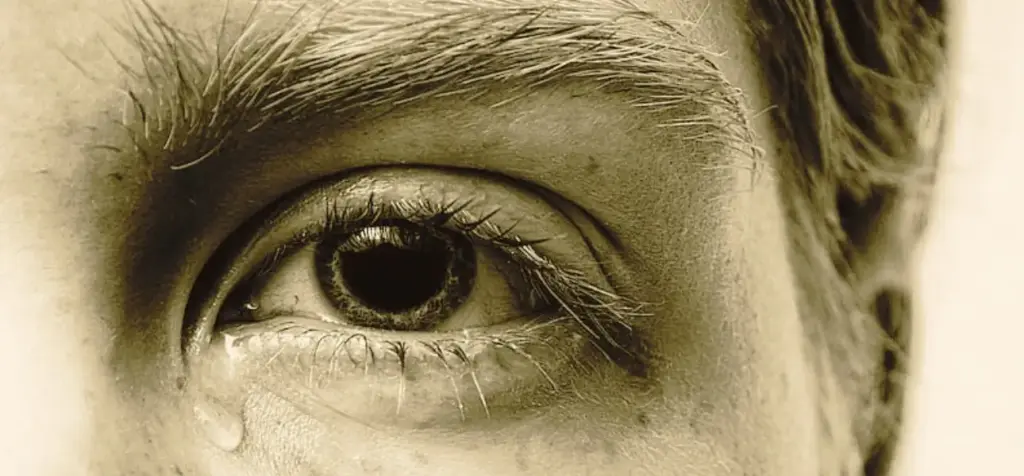
Alcoholic Jaundice Eyes: Causes, Effects, and Treatment
-
 By:
Alex Herrera
By:
Alex Herrera
-
 Editor:
Phyllis Rodriguez, PMHNP-BC
Editor:
Phyllis Rodriguez, PMHNP-BC
-
 Clinical Reviewer:
Dr. Ash Bhatt, MD, MRO
Clinical Reviewer:
Dr. Ash Bhatt, MD, MRO
Alcoholic jaundice eyes, characterized by yellowing of the eyes, is a condition often associated with chronic alcohol abuse. It is a sign of liver dysfunction and can indicate serious underlying health issues. As an addiction treatment provider across the country, we understand the detrimental effects of alcohol on the body, particularly on the liver, and offer comprehensive treatment programs to help individuals overcome alcohol addiction and address the consequences of alcoholic jaundice.
In this article, we explore how to get rid of yellow eyes from alcohol, the potential for liver and kidney failure, the nature of liver failure, the life expectancy with jaundice, and the possibility of its recurrence.
How to Get Rid of Yellow Eyes From Alcohol
To effectively get rid of yellow eyes caused by alcohol-induced jaundice, the primary focus should be on addressing the underlying liver damage and ceasing alcohol consumption. Seeking professional help from Legacy Healing Center is crucial, as our experienced medical team can provide personalized treatment plans that include medical detox, nutritional support, counseling, and unique addiction therapies to support liver health and overall recovery. Quitting alcohol and adopting a healthy lifestyle, including a balanced diet and regular exercise, can significantly aid in the resolution of alcoholic jaundice.


Can Alcohol Cause Liver and Kidney Failure?
Yes, chronic and excessive alcohol consumption can lead to both liver and kidney failure. The liver is responsible for metabolizing alcohol, and prolonged alcohol abuse can result in inflammation, scarring (cirrhosis), and impaired liver function. Additionally, alcohol-induced liver damage can contribute to kidney dysfunction, further exacerbating the risk of kidney failure.
What Is Liver Failure?
Liver failure occurs when the liver is severely damaged and fails to perform its vital functions adequately. It can result from various causes, including alcohol abuse. Liver failure is a life-threatening condition that requires immediate medical attention. Symptoms may include jaundice, abdominal pain, swelling, confusion, and bleeding disorders. Timely intervention and treatment are essential in managing liver failure.
How Long Can You Live With Jaundice?
The life expectancy of individuals with jaundice depends on the underlying cause, the severity of liver damage, and the effectiveness of treatment. It is crucial to seek professional medical help to diagnose and address the underlying liver condition. By quitting alcohol, adopting a healthy lifestyle, and receiving appropriate treatment, individuals can improve their prognosis and increase their life expectancy.
Can Jaundice Come Back?
Yes, jaundice can recur if the underlying cause, such as alcohol abuse, is not addressed effectively. Continuing alcohol consumption and failing to address the root cause of liver dysfunction can lead to a recurrence of jaundice and further complications. It is crucial to address alcohol addiction comprehensively to prevent the recurrence of alcoholic jaundice and alcoholic jaundice eyes.
Speak confidentially with a Legacy Healing Center specialist or check your insurance in minutes. Both options are private, free, and focused on helping you start healing. Speak confidentially with a Legacy Healing Center specialist or check your insurance in minutes. Both options are private, free, and focused on helping you start healing. Get immediate, confidential guidance on your treatment options and insurance. 24/7 Admissions | 100% Private Answer a few quick questions to see if you may qualify for treatment. Our team can arrange flights and transportation for you.
Traveling for treatment?
You Don’t Have to Do This Alone
![]()
Talk to a Treatment Specialist
![]()
Verify Your Insurance in 2 Minutes
You Don’t Have to Do This Alone

Talk to a Treatment Specialist

Check Your Insurance in 2 Minutes
Traveling for treatment?
Our Rehab Center in Cincinnati Can Help Overcome Alcohol Addiction
At Legacy Healing Center in Cincinnati, OH, we provide specialized levels of rehab care to address alcohol addiction and its consequences, including alcoholic jaundice.
If you or a loved one is struggling with alcohol addiction or experiencing symptoms of alcoholic jaundice eyes, do not hesitate to contact Legacy Healing Center. Our dedicated team is here to provide the support, guidance, and personalized addiction treatment necessary to overcome addiction and address the associated health concerns. Take the first step towards a healthier, alcohol-free life.
To learn more about our treatment centers, contact us today and speak with one of our trained intake specialists.
Frequently Asked
Questions about Alcoholic Jaundice Eyes
Why do eyes turn yellow after drinking alcohol?
Eyes may turn yellow after drinking because of a buildup of bilirubin, a yellow pigment produced when the liver cannot process toxins efficiently. Excessive or long-term alcohol use damages liver cells and leads to alcoholic jaundice eyes—a visible sign of alcoholic hepatitis or alcohol-induced liver disease. If your eyes turn yellow after drinking, it’s a strong indication that your liver may be struggling to filter waste properly.
Can yellow eyes from alcohol go away?
Yes, yellow eyes caused by alcohol can improve once you stop drinking and give your liver time to heal. When you quit alcohol, maintain a liver-friendly diet, stay hydrated, and follow medical guidance, bilirubin levels gradually return to normal. However, if alcohol consumption continues, alcoholic cirrhosis or fatty liver disease can cause permanent eye discoloration and lasting liver damage.
How long does it take for jaundice eyes from alcohol to clear up?
The time it takes for alcoholic jaundice eyes to clear depends on the severity of liver damage. Mild cases of jaundice from alcohol may begin to improve within two to six weeks of sobriety. More severe conditions, such as alcoholic hepatitis or liver cirrhosis, may take months or require long-term medical care. A supervised alcohol detox program, proper nutrition, and liver support therapy can accelerate recovery.
Is jaundice from alcohol life-threatening?
Yes, jaundice caused by alcohol abuse can be life-threatening. It usually signals serious liver inflammation, liver failure, or hepatorenal syndrome (combined liver and kidney failure). If you notice yellowing of your eyes or skin after drinking, seek medical help immediately. Early diagnosis and a structured alcohol addiction treatment program can prevent irreversible damage and improve survival chances.
Can alcoholic jaundice eyes come back after recovery?
Yes, alcoholic jaundice can return if you resume drinking or fail to maintain liver health after recovery. Even small amounts of alcohol can trigger inflammation in a previously damaged liver, leading to recurring yellow eyes after drinking. Long-term sobriety, regular liver checkups, and participation in relapse prevention programs at centers like Legacy Healing Center are essential to prevent recurrence and protect liver function.










